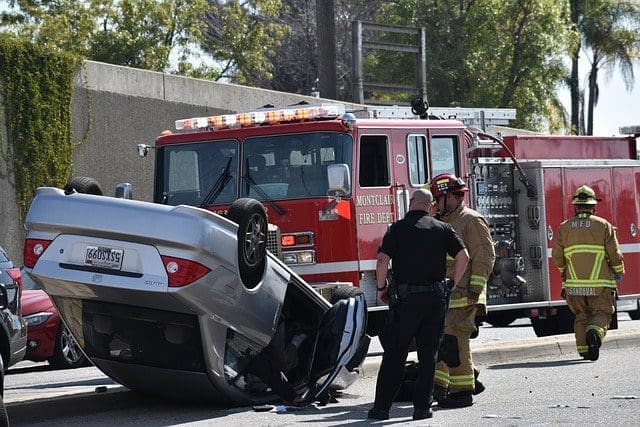Embarking on a road trip is an exciting way to explore new destinations and create lifelong memories. Whether driving along the coast, crossing state lines, or venturing into unknown territories, road trips offer the freedom to travel at your own pace. However, even carefully planned trips can take an unexpected turn if you’re involved in a car accident. Accidents can be stressful and disorienting, especially when you’re far from home, and knowing how to handle the situation is essential for protecting yourself and others. This post guides you through the critical steps after a car accident while traveling, from ensuring your safety and documenting the scene to managing insurance claims and seeking legal help.
Ensure Immediate Safety and Assess Injuries
The first and most important step after any car accident is to ensure the safety of everyone involved. Accidents can cause chaos, confusion, and fear. Begin by checking yourself, your passengers, and anyone else involved in the accident for injuries. Do not attempt to move anyone unless they are in immediate danger. Instead, call emergency services right away for medical assistance. If your vehicle is in a dangerous position, such as in the middle of the road or on the shoulder of a highway, and you can safely move it, pull off to a safer location. If you cannot move your vehicle, stay inside with your seatbelt fastened until help arrives.
In most situations, you should call 911 to report the accident, especially if there are injuries or significant vehicle damage. Depending on the severity of the accident, the authorities will dispatch medical personnel, police, and possibly tow trucks. According to a reputable auto accident lawyer, the documentation related to your report can serve as a crucial piece of evidence later on. Safety is the top priority after an accident, so ensure that everyone is out of harm’s way and that emergency responders are on their way to assist.
Call the Police and File an Accident Report
No matter how minor the accident may seem, it’s essential to call the police and file an official accident report. A police report is a crucial document that will help you with insurance claims and legal matters, as it provides an objective account of the accident. This information can be critical when determining fault and liability. It also serves as official documentation of the incident, especially if you need to file a claim with your insurance company or if legal disputes arise later.
When the police arrive, provide accurate and factual information about the accident. Avoid speculating or admitting fault, as this could impact the outcome of a legal case. Stick to the facts, such as what direction you were traveling, your actions, and what you observed before the accident. Once the police have completed their investigation, ask for a copy of the accident report or details on obtaining one. This report will be necessary for any legal action you may need to take later. Having an official police report ensures a formal record of the accident.
Document the Scene and Gather Information
After ensuring your safety and filing a police report, your next step is to gather as much information as possible at the accident scene. This documentation will be invaluable. Use your phone or camera to take clear photos and videos of the accident scene. Capture the road conditions, skid marks, and any visible injuries. Also, take pictures of traffic signs, signals, and surrounding landmarks.
Be sure to exchange contact and insurance information with the other driver(s) involved in the accident. This includes names, phone numbers, addresses, driver’s license numbers, insurance company names and policy numbers, license plate numbers, vehicle make, model, and color. Witnesses can provide valuable third-party accounts of the accident, which may help clarify who was at fault.
Jot down important details about the accident, such as the time, location, weather conditions, and the direction of travel for all vehicles involved. The more specific your documentation, the better equipped you’ll be to file an accurate insurance claim or support your case in a legal dispute. Thorough documentation of the accident scene is critical to ensuring you have all the evidence you need to support your claim.
Contact Your Insurance Company
Once you’ve ensured your safety and gathered the necessary information, it’s time to contact your insurance company to report the accident. Notify your insurer immediately. When speaking with your insurance company, provide them with a detailed account of the accident, including the photos, videos, and witness information you gathered.
Familiarize yourself with your insurance policy and understand what your plan covers, such as liability coverage and collision medical payments coverage. If you’re traveling out of state or abroad, clarify whether your coverage extends to your current location. Contacting your insurance company and providing accurate information ensures your claim is processed smoothly and you receive the compensation you need.
Seek Medical Attention and Keep Records
See a medical professional and inform them that you were involved in a car accident so they can check for potential injuries that may not be immediately obvious. If you sustain injuries, keep detailed medical treatment records, including doctor visits, prescriptions, rehabilitation, and any ongoing care you need. These records will prove your injuries in an insurance claim or personal injury lawsuit. Be vigilant about your health in the days and weeks following the accident. Some injuries may take time to develop, so monitor yourself for symptoms such as headaches, dizziness, nausea, or pain. Seeking prompt medical attention ensures that any injuries are correctly diagnosed and treated, and keeping records helps support your case for compensation.
Consider Seeking Legal Advice
If the car accident results in significant damage, serious injuries, or disputes over fault, it may be best to consult a car accident lawyer. If the other driver’s insurance company denies your claim, it’s time to seek legal advice. A lawyer can gather additional evidence and represent you in court if necessary. They will also advise you on how state laws or cross-jurisdictional issues may impact your case. Seeking legal advice can ensure you receive the compensation you deserve, mainly if the accident results in legal complications.

Being involved in a car accident while traveling can be a frightening and overwhelming experience, but knowing what steps to take can help you handle the situation effectively. By ensuring your safety, documenting the accident, reporting the incident to your insurance company, seeking medical attention, and consulting with a lawyer if necessary, you can confidently protect yourself and navigate the aftermath of the accident. Accidents are an unfortunate reality of road travel. Still, with the proper preparation, you can minimize the stress and disruption they cause, allowing you to focus on returning safely to the road.


